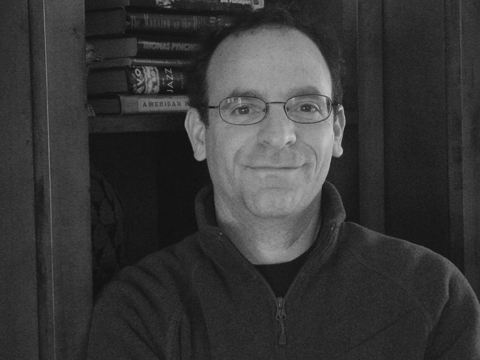
Burdnick |
As the founder of jambands.com, the author of The Phishing Manual: Compendium to the Music of Phish (1996), and an editor of Relix magazine, Dean Budnick knows how live music works.
And he gets at a crucial bit of the tale with his book Ticket Masters: The Rise of the Concert Industry and How the Public Got Scalped, out in paperback next week.
The story he tells with his co-author and fellow Relix editor, Josh Baron, is comprehensive, stretching from the construction of the first known outdoor amphitheatre near Athens around 325 BCE, to a present-day Live Nation executive telling fans on Twitter: "if you want ticket prices to go down stop stealing music."
Through characters like legendary rock promoter Bill Graham and case histories with names like "The String Cheese Incident settlement," Ticket Masters is a biography of the modern concert ticket: an explanation of the barcodes, the prices, and the fine print
Budnick is a Rhode Island native who was introduced to live music via NRBQ and Max Creek at the original Lupo's. He currently lives in East Greenwich and teaches at Roger Williams University and the University of Rhode Island. I caught up with him recently to discuss, among other things, the definition of a "convenience fee." The interview has been edited and condensed.
CAN YOU ENJOY A CONCERT NOW, HAVING SEEN WHAT YOU'VE SEEN? I co-promoted this tour in 1999 for jambands.com. And the second night of the tour, it's the close of the night and we're doing the settlement with the band. And the co-promoter with me — who I knew moderately well but I wouldn't say I was intimate with him — says to me, "OK, Dean, do you want to see the settlement sheet that's ours or the one we show the band?" I understood then and there that, number one, I didn't want to be a promoter; that's not the relationship I want to have with bands. But, two, there was a lot more going on than I'd ever suspected.
HOW DO YOU DETERMINE A FAIR TICKET PRICE? This is what the artists have to deal with today: are you going to let ticket prices be determined by the market and, in particular, the secondary market? Or are you going to step in and do something about it? An interesting case is brought up by Bruce Springsteen. Springsteen price[d] tickets at $95 across the board and believed that that was fair. In doing that, he was trying to be, relatively speaking, a man of the people. But what happened is, because he priced it at $95, there was a flood of people who were trying to buy tickets when they went on sale so they could resell them on Stubhub and TicketsNow. If you were smart about it, you could see that if you bought floor tickets at $95 dollars, you probably could turn around and make a little money. The way that the online market has opened up just has changed the dynamics of the situation. So there were some people who were calling him out on that and saying, "Listen, you should have known." And I think it's tough, it's not easily resolved. Because I do think he had the right spirit about it, but in many cases, it had the wrong result.